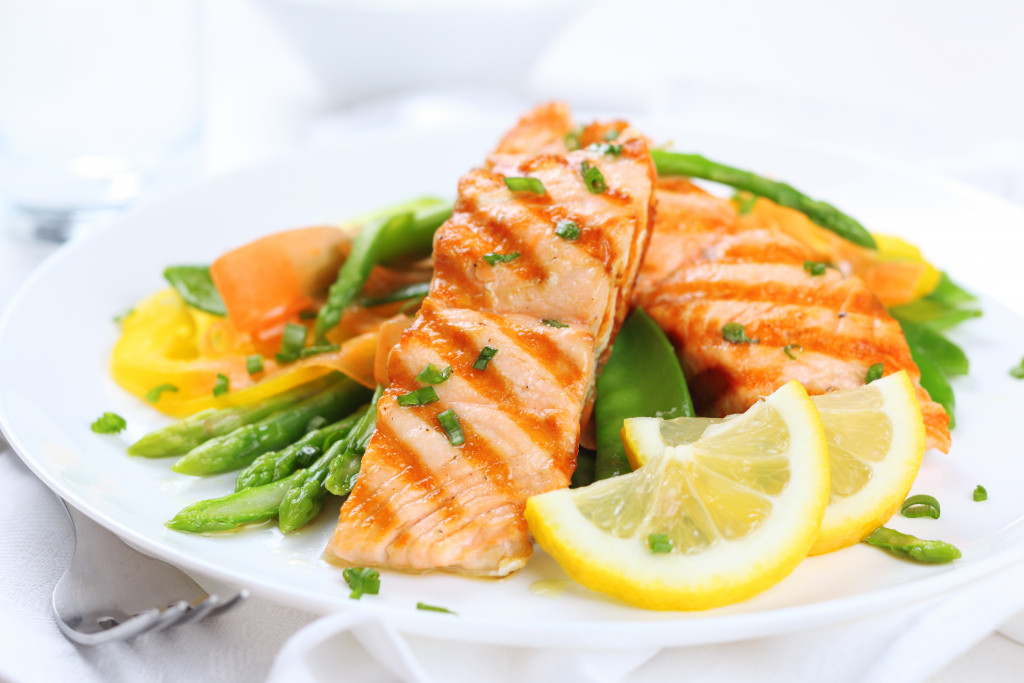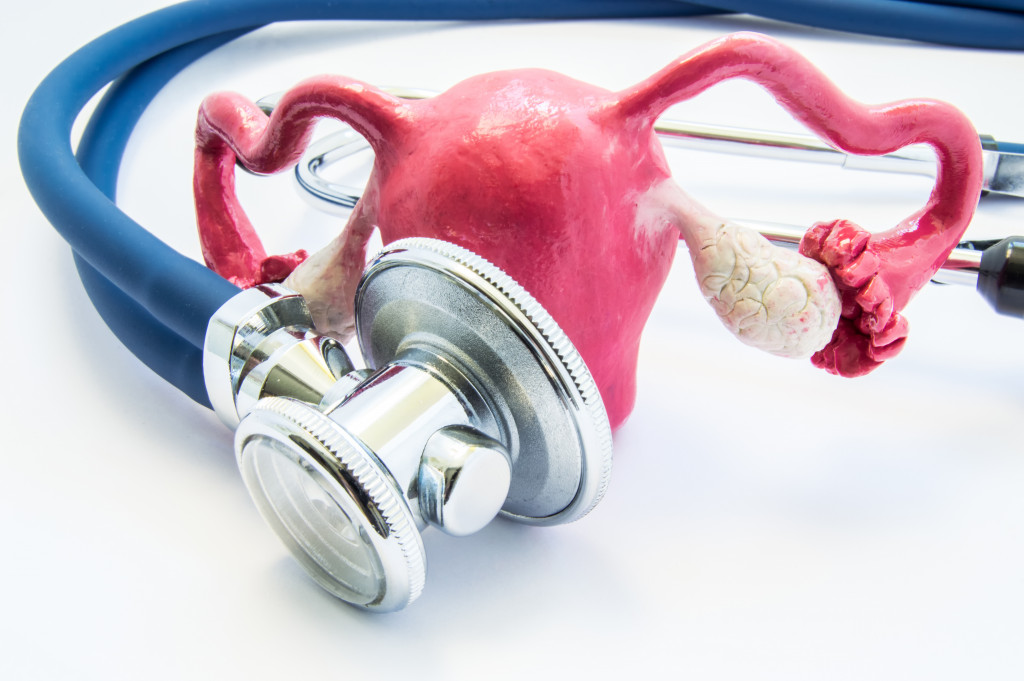The treatment for PCOS has not yet been determined. This disease has to be controlled by making lifestyle changes. The best way to control and manage PCOS is to ensure proper weight management (PCOS diet). Even a 5% reduction in weight can be of great help in the treatment of the disease. PCOS can also lead to back and muscle aches. If the problem persists, consult an orthopedic doctor or scoliosis treatment specialist.
Thus, PCOS patients should exercise regularly and maintain a healthy diet. Sugar and carbohydrates should be low in the diet. High protein and high fiber intake are recommended for patients suffering from PCOS.
Symptoms of PCOS
If you are gaining weight and you are feeling tired or you are having problems related to hair, then you may have PCOS disease. Along with this, the problem of headache, sleeplessness, acne, and infertility can also make a victim of this disease.
Why is nutritious food important in PCOS?
What should PCOS patients eat and whatnot, if it is known, then its risk can be reduced. It can be passed on to your children. Moreover, children born to women with polycystic ovary syndrome (PCOS) may be more likely to develop autism. If it is not treated on time, then PCOS women can have other health problems like high blood pressure, high cholesterol, anxiety, depression, diabetes, breast cancer. Know here the symptoms of PCOS, what to eat and what not to eat in PCOS.
What To Eat In PCOS?
-
Eat Foods Rich In Fiber
Foods rich in fiber help in controlling insulin, so eat such carbohydrate food which has high fiber content. Fruits and vegetables, whole grains and pulses, etc. Apart from this, you should include blueberries, strawberries, apples, papaya, citrus fruits like oranges and lemons in your diet, fruits like watermelon, pomegranate, tomatoes, broccoli, cauliflower, spinach, pumpkin, capsicum, beans, etc. Vegetables, barley, quinoa, oats, Eat brown rice, porridge, millet, etc. grains and kidney beans, chickpeas, soya beans, cowpea, lentils, etc.
-
Non-fat Protein
Diets rich in protein help reduce androgen and testosterone levels in the body, but red meat and animal protein are also high in fat content which can increase insulin levels. Therefore, women suffering from PCOS must rely on non-fat proteins for their protein intake. Therefore, chicken, egg, salmon fish, sardine fish, tuna fish, tofu, turkey, etc. should be included in the diet of PCOS.
-
Anti-inflammatory Foods
Inflammation means that the problem of internal inflammation and irritation is also a part of PCOS, so it is very important to include anti-inflammatory foods in the diet. Green tea and black tea also contain powerful anti-inflammatory ingredients. Apart from this, you can consume spices like ginger, turmeric, black pepper, bay leaf, fennel, celery, cumin, coriander, star anise, clove, cinnamon, rosemary, thyme, etc.
-
Healthy Fat

Women suffering from PCOS should consume food items that are rich in omega-3 fatty acids. Include mackerel fish, tuna, salmon, sturgeon, sardine fish, walnuts, chia seeds, flaxseeds, avocado, olive oil, etc.
What Not to Eat on PCOS?
-
Avoid Sugar Consumption
Be it sweets and desserts or processed food such as chips, muffins, bread, etc., all these have a high amount of sugar and excessive consumption of sugar can increase blood sugar levels and have a negative effect on insulin levels. Sugary drinks should be taken in limited quantities. They lead to weight gain which increases the chances for PCOS.
-
Carbohydrates
Carbohydrates that do not contain fiber also increase the level of insulin and consuming too much of them can also lead to obesity and weight gain. Things like white rice and potatoes have a high glycemic index, so eat a diet that has a low glycemic index.
-
Fried Food
Fried foods are high in fat and calories, which can lead to weight gain. Eating these things can worsen the symptoms of PCOS and make them difficult to manage.
-
Alcohol and Smoking
Consuming excessive amounts of alcohol can also increase blood sugar levels and increase the risk of weight gain, inflammation, and heart disease. Smoking not only increases androgen and insulin levels but also increases the risk of metabolic syndrome. Therefore, as far as possible avoid the consumption of alcohol and cigarettes.
Ovarian cysts are common of PCOS and may go unnoticed, resolving on their own. Some cysts, on the other hand, can grow huge, rupture, or twist the ovaries, causing pain and possibly bleeding. Over time, some of them turn malignant. Anyone who has severe abdominal discomfort and bleeding should contact a doctor right away since it could be an ovarian cyst PCOS that needs to be treated.
